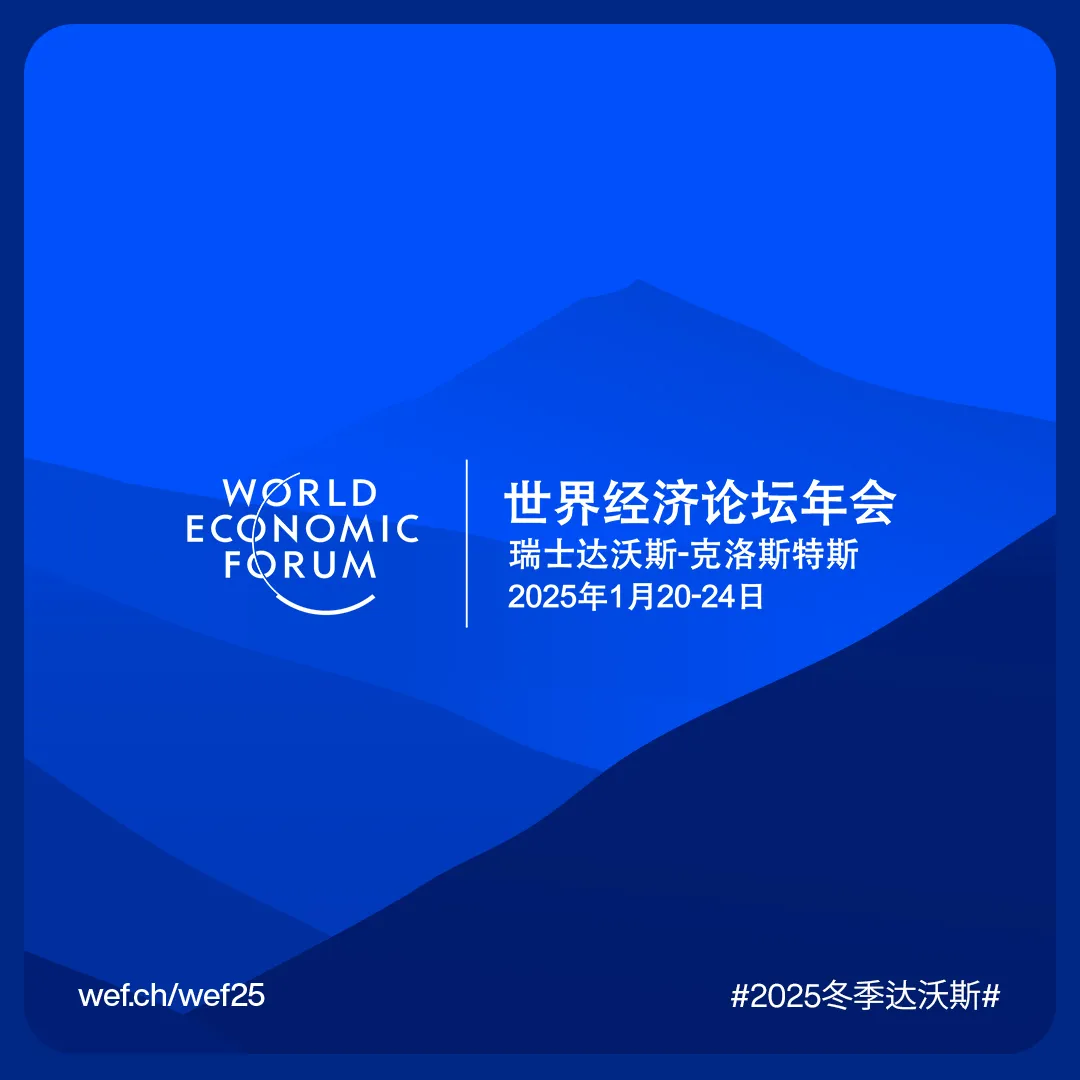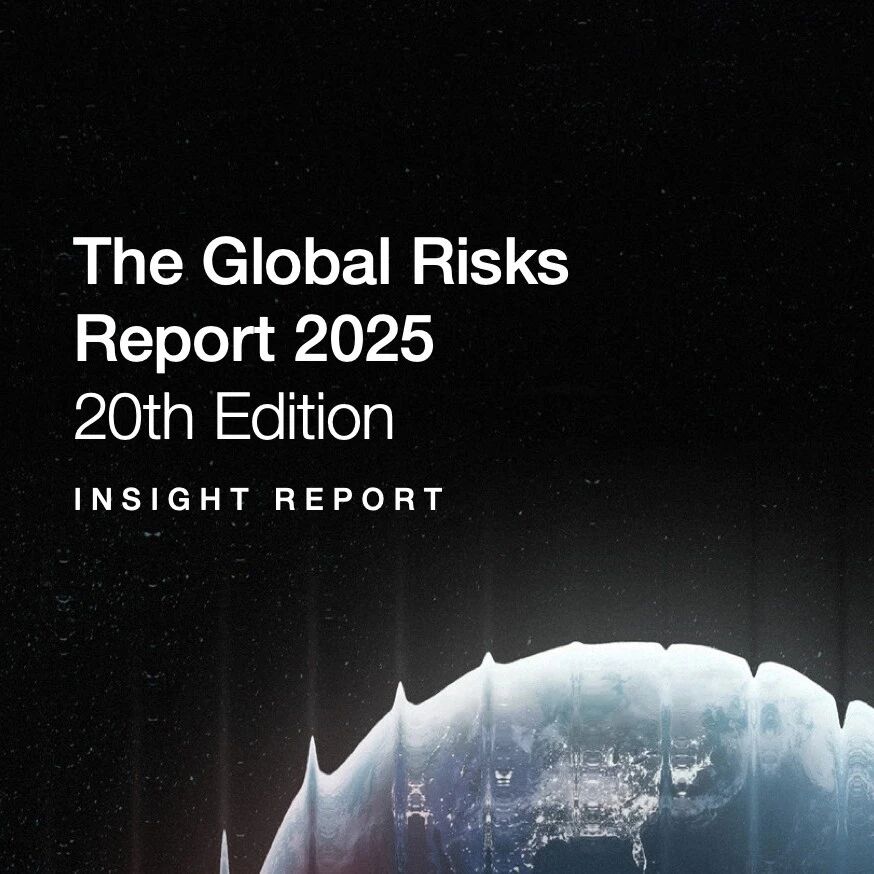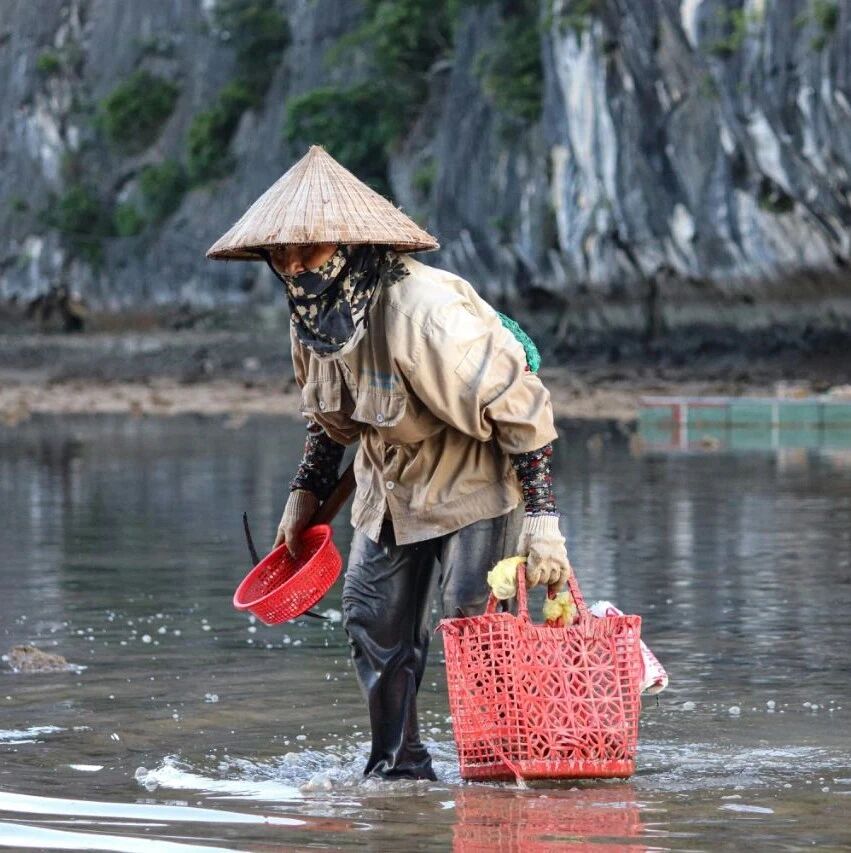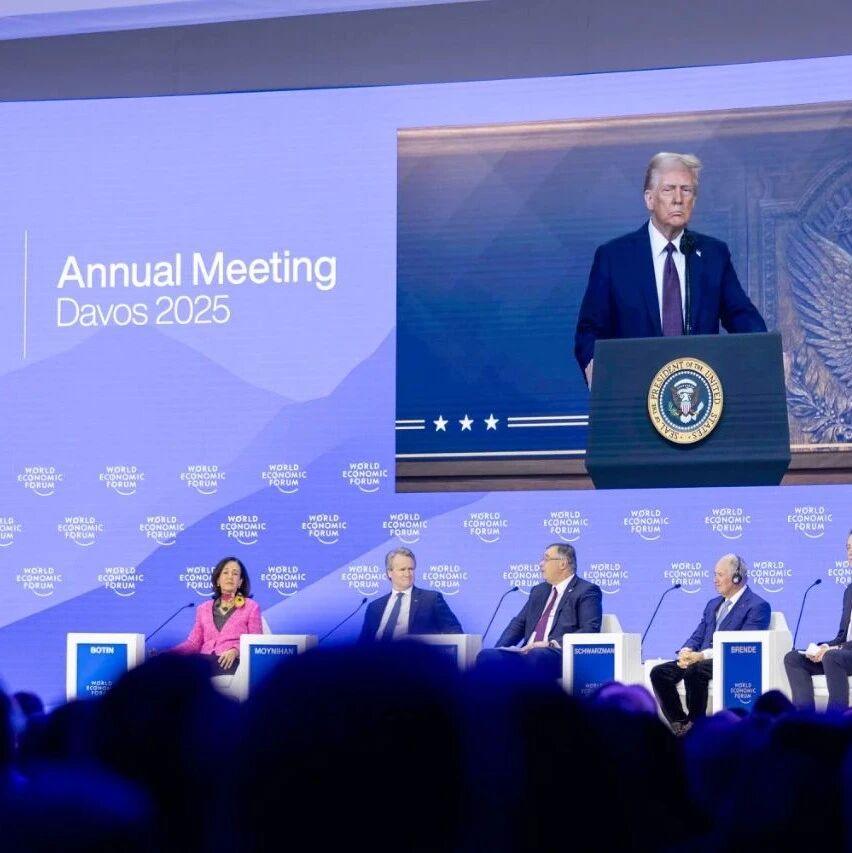(G7G20)2025
Gayle Markovitz
Global Head of Text and Audio Content at the World Economic Forum
The 2025 World Economic Forum Annual Meeting will be held from January 20 to 24 in Davos, Switzerland.
This year's annual meeting focuses on the theme "Collaboration in the Age of Intelligence," and it will be open to the public via media livestreaming. For an overview of the conference topics, visit the World Economic Forum website.
The annual meeting will bring together nearly 3,000 leaders from more than 130 countries, along with 350 political leaders from every key region—including 60 heads of state and government.
Last year, as we gathered for the annual meeting, we witnessed a chasm between hope and fear—but this year, the backdrop for the 2025 Winter Davos is equally complex: geopolitical economic uncertainties, escalating trade tensions, growing cultural polarization, and persistent climate anxiety persist. Yet at the same time, rapid innovations in areas like artificial intelligence, quantum computing, and biotechnology are sparking new possibilities, driving productivity gains and improving living standards.At the 2024 Winter Davos, a phrase frequently echoed was, "Prediction is not destiny." Leaders warned of the risks of division, yet remained committed to unity. The discussions highlighted the arrival of a new economic "new normal," while also underscoring the "remarkable resilience" of global systems. Meanwhile, AI sounded an urgent wake-up call—but we also couldn’t help but feel excited about the extraordinary achievements it could help humanity unlock.Therefore, as we emerge from the chaos of what was dubbed democracy's "record-breaking year" and look ahead to 2025, the ruling party's shift signals the end of an era. The urgent need for leaders to regroup underscores that collaboration is more critical than ever—but also increasingly challenging.Collaboration in the Age of IntelligenceThe theme of the 2025 Winter Davos is "Collaboration in the Age of Intelligence." This concept stems from Klaus Schwab’s insight: technological convergence is rapidly reshaping the global landscape, placing us at a pivotal turning point. He notes, "This is far more than just the age of technology—it’s a societal revolution, wielding the power to either advance human progress or drive division among us."So, in an era defined by technological convergence and superintelligence, what is the biggest challenge leaders face when tackling collaborative challenges? How can we prevent division and build a smarter future? And as we push forward with innovation, how do we address critical crises like climate change and the misuse of technology? Can collective action and responsible leadership truly foster equity, sustainability, and cooperation—rather than deepening existing divides?The meeting will revolve around the following five topics:1. Reshaping Growth:Revitalizing and reshaping growth is essential for building a stronger, more resilient economy. In the new global economic landscape, how can we identify fresh sources of growth?2. Industries in the Intelligent Era:Industries must adjust their business strategies to address significant geopolitical shifts and technological transformations. As industries undergo this transformation, how should business leaders strike a balance between short-term objectives and long-term needs?3. Investing in people:Geoeconomic shifts, the green transition, and technological advancements are reshaping employment, skill distribution, wealth allocation, healthcare, education, and public services in profound ways. How can both the public and private sectors invest effectively in human capital development and quality job creation—contributing to the building of a modern, resilient society?4. Defend Earth:Innovative partnerships and dialogue that can catalyze investment as well as the deployment of climate and clean technologies are crucial for advancing global climate and nature goals—and for addressing the "energy trilemma," which involves ensuring affordable, secure, and sustainable energy supplies. So, how can we drive climate and nature action through groundbreaking partnerships, scaled-up financing, and the deployment of cutting-edge technologies?5. Rebuilding Trust:Today's world is increasingly complex and rapidly evolving, with growing societal divisions, geopolitical multipolarity, and a shift toward protectionist policies—factors that are simultaneously hindering trade and investment. How can stakeholders at both the international level and within societies collaborate more effectively to address these challenges?Who will attend the 2025 Winter Davos?Attendees came from diverse fields, industries, generations, and genders. This diversity is key to ensuring the forum facilitates the broadest possible discussion of the world's most critical issues—and enables the development of solutions through a multifaceted, cross-sectoral lens.More than 350 political leaders are expected to attend this year's annual meeting, including 60 heads of state and government leaders.Among the high-ranking political leaders attending the meeting were: Vice Premier of the State Council of the People's Republic of ChinaDing Xuexiang, U.S. President-electDonald Trump, video call), President of the European CommissionUrsula von der Leyen, German Federal ChancellorOlaf Scholz, President of ArgentinaJavier Milei, President of the European ParliamentRoberta Metsola, President of South AfricaCyril Ramaphosa (Matamela Cyril Ramaphosa), Spanish Prime MinisterPedro Sánchez• 2025 President of the Swiss Confederation, Federal Councillor, and Minister of FinanceKarin Keller-Sutter, Prime Minister of ArmeniaNikol Pashinyan, President of AzerbaijanIlham Aliyev, Chief Advisor to the Government of BangladeshMuhammad YunusBelgian Prime MinisterAlexander De Croo– President of the Democratic Republic of the CongoFélix-Antoine Tshisekedi TshilomboEgyptian Prime MinisterMostafa MadbouliIraqi PresidentAbdul Latif Rashid, Irish Prime MinisterSimon Harris, the President of IsraelIsaac HerzogMalaysian Prime MinisterAnwar Ibrahim• Prime Minister of MongoliaOyun-Erdene Luvsannamsrai, Prime Minister of the NetherlandsDick SchoofPalestinian Prime Minister of the Palestinian National AuthorityMohammed Mustafa, President of PeruDina Ercilia Boluarte, President of PolandAndrzej DudaQatar's Prime Minister and Foreign MinisterMohammed bin Abdulrahman Al-Thani, President of SerbiaAleksandar Vučić, President of SingaporeTharman Shanmugaratnam, Swedish Prime Minister UUlf KristerssonSyrian Foreign MinisterAsaad Hassan Al Shibani, Thai Prime MinisterPaetongtarn Shinawatra, President of UkraineVolodymyr ZelenskyyAnd the Vietnamese Prime MinisterPham Minh Chinh2. International OrganizationsAmong the heads of international organizations attending were: the Director-General of the World Trade OrganizationNgozi Okonjo-Iweala, Managing Director of the International Monetary Fund, KristalKristalina Georgieva• Secretary-General of the North Atlantic Treaty OrganizationMark Rutte, Director-General of the World Health OrganizationTedros Adhanom GhebreyesusAnd the Administrator of the United Nations Development ProgrammeAchim Steiner3. Private Sector and Forum CommunitiesMore than 1,600 business leaders will attend this year’s annual meeting, including over 900 chairpersons and CEOs from the World Economic Forum’s global member and partner companies—among them, more than 120 hail from pioneering global innovators, tech trailblazers, and unicorn enterprises that are reshaping industries worldwide.The conference will also bring together over 170 leaders from civil society organizations, including trade unions, non-governmental organizations, religious groups, and Indigenous communities, as well as experts and heads from world-class universities, research institutions, and think tanks. In addition, more than 160 members of the Forum’s Unicorn and Tech Pioneer communities, the Global Shapers Community, the Global Young Leaders Forum, and the Schwab Foundation for Social Entrepreneurship will attend, showcasing local innovations and solutions aimed at tackling global challenges.The heads of the participating social organizations include: the President of the International Rescue CommitteeDavid Miliband, CEO of the Global Vaccine Immunization AllianceSania Nishtar• General Secretary of the International Trade Union ConfederationLuc Triangle, CEO of Protect InternationalM. Sanjayan• President and CEO of the International Crisis GroupComfort EroChairperson of the Association of Indigenous Women and Peoples of ChadHindou Oumarou Ibrahim, Executive Director of Human Rights WatchTirana HassanGlobal Fund Executive DirectorPeter Sands• Executive Director of Oxfam InternationalAmitabh BeharAs well as the presidents of the Pontifical Academy of Sciences and the Pontifical Academy of Social Sciences, the CardinalCardinal Peter Kodwo TurksonThis year's annual conference was open to the public via live-streamed public sessions and covered extensively by media leaders and journalists. Additionally, the conference facilitated local community engagement through the Davos Open Forum.
The forum’s purpose-driven Extended Reality (XR) platform and its Global Collaboration Village will also bring together stakeholders from around the world, fostering real-time acceleration, collaboration, and scaling of advancements aligned with the conference’s key themes in an immersive environment.

Feel free to share this on WeChat Moments; please leave a comment below the post if you’d like to republish.
The World Economic Forum is an independent and neutral platform dedicated to bringing together diverse perspectives to discuss critical global, regional, and industry-specific issues.
Follow us on Weibo, WeChat Video Accounts, Douyin, and Xiaohongshu!
"World Economic Forum"





